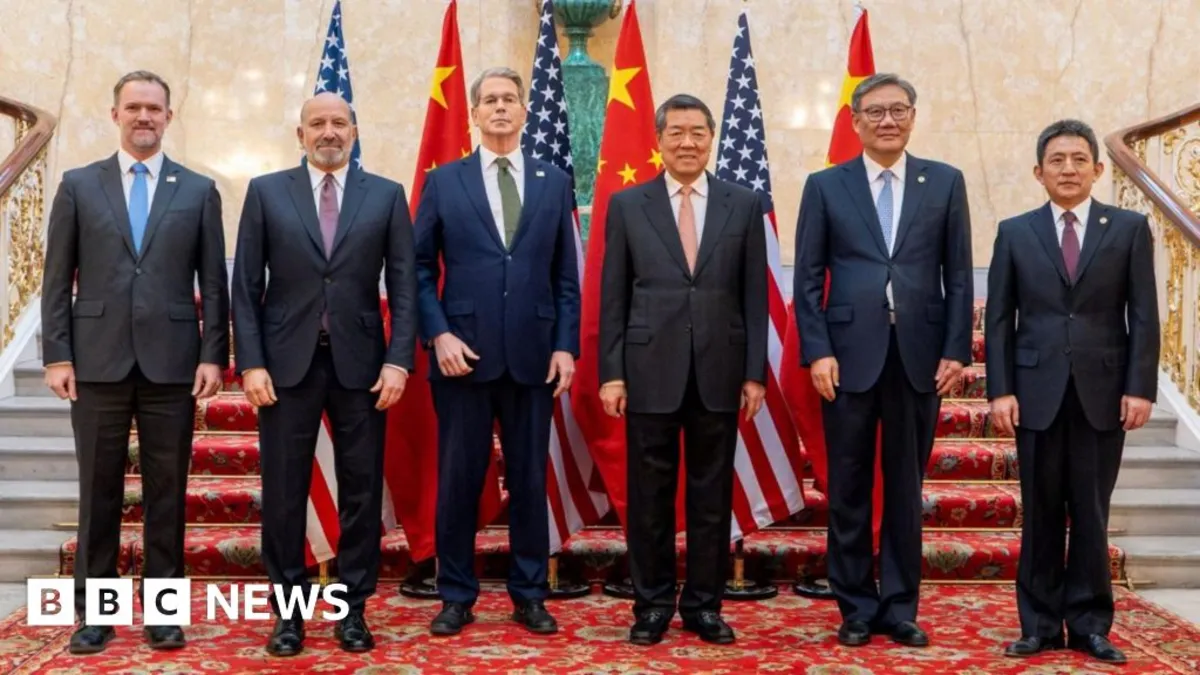
The United States and China have announced a significant breakthrough in their ongoing trade negotiations, agreeing in principle to a framework aimed at de-escalating the trade tensions between the two largest economies in the world. This announcement follows two days of intense discussions held in London between senior officials from both countries.
US Commerce Secretary Howard Lutnick expressed optimism about the deal, stating that it should effectively resolve the existing restrictions on rare earth minerals and magnets, which are critical for various modern technologies. The proposed framework will now be presented to the respective leaders of the two nations, President Donald Trump and President Xi Jinping, for their approval.
The negotiations were primarily focused on China's exports of rare earth minerals, which play a vital role in the production of cutting-edge technologies, including smartphones and electric vehicles. Last month, both countries had reached a temporary truce regarding trade tariffs, but since then, accusations of violations have emerged from both sides.
The US has claimed that China has been slow to release exports of rare earth metals and magnets, which are essential for manufacturing. Concurrently, Washington has imposed restrictions on China's access to US goods, specifically targeting semiconductors and technologies related to artificial intelligence (AI).
During a press conference, Lutnick stated, "We have reached a framework to implement the Geneva consensus." He emphasized that once the presidents approve the framework, efforts will be made to implement it swiftly.
This new round of negotiations comes on the heels of a phone call last week between Trump and Xi, which the US President characterized as a "very good talk." According to China's Vice Commerce Minister, Li Chenggang, both sides have reached a framework for implementing the consensus that was established during their conversation on June 5th, alongside agreements made during a recent Geneva meeting.
Earlier this year, Trump had announced sweeping tariffs on imports from various countries, with China being the most affected. In retaliation, Beijing imposed higher tariffs on US imports, leading to a tit-for-tat escalation that saw tariffs peak at an alarming 145%.
In May, talks held in Switzerland resulted in a temporary truce, which Trump labeled a "total reset." This agreement reduced US tariffs on Chinese products to 30%, while China lowered its tariffs on US imports to 10% and pledged to lift barriers on critical mineral exports. The two nations agreed to a 90-day deadline to finalize a comprehensive trade deal.
However, since then, both countries have reported breaches regarding non-tariff commitments. US Trade Representative Jamieson Greer stated that China had not sufficiently rolled back restrictions on exports of rare earth magnets. Conversely, Beijing accused the US of violating the agreement by halting sales of computer chip design software to Chinese companies and canceling visas for Chinese students.
In a development prior to this week's discussions, the Chinese Ministry of Commerce announced that it had approved certain applications for rare earth export licenses, although specific details regarding the countries involved were not disclosed. In a positive note, Trump indicated that Xi had agreed to resume trade in rare earth materials, which could further facilitate improved relations between the two nations.